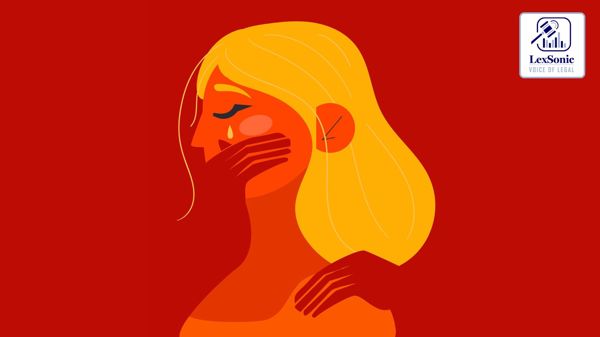In In Re: Right To Privacy of Adolescents, Suo Motu Writ Petition (C) No. 3 of 2023 with Criminal Appeal No. 1451 of 2024, decided on May 23, 2025, by the Supreme Court of India, involved a criminal appeal filed by the State of West Bengal and a Suo Motu writ petition. The Court dealt with the sentencing of an accused convicted under the Protection of Children from Sexual Offences (POCSO) Act, 2012, and the Indian Penal Code (IPC), and issues concerning the rehabilitation of the victim and her child. Justices Abhay S. Oka and Ujjal Bhuyan presided over the case.
Factual Aspects and Judicial Proceedings:
The accused was convicted by a Special Judge under the POCSO Act for offenses including Section 6 of the POCSO Act and Sections 363 and 366 of the IPC, receiving a sentence of twenty years rigorous imprisonment and a fine for the POCSO offense, and lesser sentences for the IPC offenses. The Calcutta High Court, however, set aside this conviction, purportedly exercising its jurisdiction under Article 226 of the Constitution and Section 482 of the Code of Criminal Procedure (CrPC).
The Supreme Court, in a detailed judgment on August 20, 2024, set aside the High Court's decision, restoring the Special Court's conviction of the accused for offenses under Section 376 (2)(n) and (3) of the IPC and Section 6 of the POCSO Act. The acquittal for Sections 363 and 366 of the IPC was confirmed, but sentencing was postponed. The victim, who was fourteen at the time of the incident in 2018, later gave birth to a child fathered by the accused. The victim's mother lodged an FIR on May 29, 2018, after her daughter left home on May 20, 2018.
High Court's Jurisdiction and Supreme Court's Observations:
The Supreme Court emphasized that the High Court could not have quashed the prosecution, even with a settlement between the accused and the victim, given the nature of the offenses. The Court referenced Gian Singh v. State of Punjab & Anr., which delineates the High Court's powers under Section 482 CrPC, stating that serious offenses like rape cannot be legally sanctioned for settlement.
Failure of State and Societal Support:
The Court highlighted the systemic failure of the State to protect the victim, who was abandoned by her parents and had no option but to seek shelter with the accused. It underscored the State's constitutional obligation under Article 21 to ensure a dignified life for victims of heinous offenses, including providing shelter, food, clothing, and education. The judgment noted that the victim, despite being a minor, was placed in a situation where she could not make an informed choice about her future.
Rehabilitation Efforts and Committee Recommendations:
A Committee of Experts, including Dr. Pekham Basu, Smt. Jayita Saha, and Mr. Sanjeeb Rakshit, was appointed to assist the Court. The Committee's preliminary report highlighted the victim's struggles due to the legal battle, recommending financial assistance for the child and educational and financial rehabilitation for the victim. The final report, submitted on January 28, 2025, emphasized the "collective failure of the systems that are there to protect a girl child," citing loopholes in child protection committees, inadequate scheme implementation, inaction of child welfare officers, and lack of legal aid and counseling.
Crucially, the final report concluded that the legal battle, rather than the crime itself, caused trauma to the victim and recommended that the family unit remain intact for the child's best interest, along with financial, legal, and educational support for the victim and her child.
Sentencing and Extraordinary Jurisdiction:
Despite the conviction, the Supreme Court, exercising its extraordinary jurisdiction under Article 142 of the Constitution, decided not to send the accused to jail. This decision was based on the understanding that imprisoning the accused would further victimize the victim, who is now comfortable with her family and focused on her daughter's education. The Court emphasized that this case should not be a precedent but rather an illustration of societal and legal system failures.
Directions and Future Measures:
The Court issued several directions to the State, including:
- Providing proper nutrition to the victim and her child.
- Bearing the entire expenditure of the victim's education up to graduation, including vocational training.
- Bearing the entire expenditure of the child's education up to 10th standard in a good school.
- Endeavoring to secure the debts incurred by the victim.
The State has already taken steps such as enrolling the victim in school and the child in an Anganwadi Centre and the Sponsorship Programme of Mission Vatsalya, providing Rs. 4,000/- monthly.
The Court also impleaded the Union of India through the Ministry of Women and Child Development to implement broader suggestions from the amicus curiae, including initiatives for adolescent well-being, comprehensive sexuality education, and establishing a structured data collection mechanism for institutional accountability. Compliance reports from the State are mandated every six months, with the first due by July 15, 2025.
Section 6, Protection of Children from Sexual Offences Act - 2012
Protection of Children from Sexual Offences Act, 2012
Section 363., Indian Penal Code - 1860
Section 366., Indian Penal Code - 1860
Indian Penal Code, 1860
Section 482., Code of Criminal Procedure - 1973
Code of Criminal Procedure, 1973

